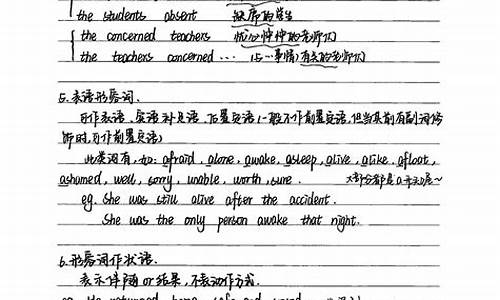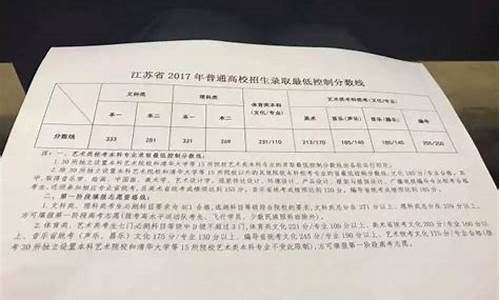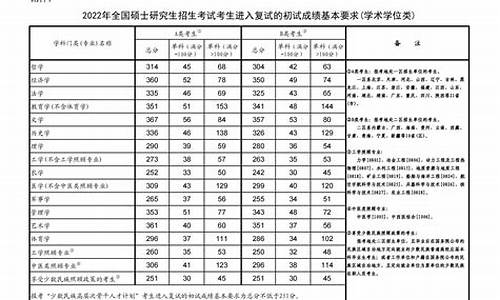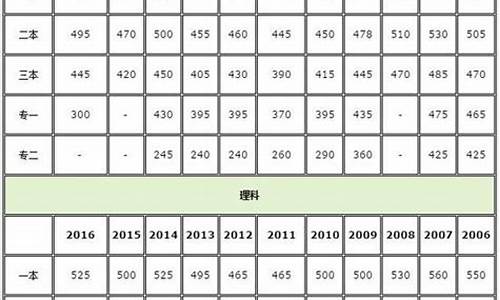您现在的位置是: 首页 > 教育改革 教育改革
高考英语形容词副词专项训练,高考英语形容词
tamoadmin 2024-06-24 人已围观
简介1.高中英语所有知识点2.高考英语语法:高中英语语法-英语形容词转译现象解读领域 名词性 形容词性 动词,动词短语 学校 Campus, facilities, theme, goal, preference, course, routine, passionate, enthusiastic, ambitious, confident, easygoing, boring part
1.高中英语所有知识点
2.高考英语语法:高中英语语法-英语形容词转译现象解读

领域
名词性
形容词性
动词,动词短语
学校
Campus, facilities, theme, goal, preference, course, routine,
passionate, enthusiastic, ambitious, confident, easygoing, boring
participate, concentrate, focus, attract, distract,
inspire, sit up all night,
课外
Interview, community service, part-time job, pocket money, spare time,
tempting, popular, challenging, corrupted,
Volunteer, waste time in, relax, get away from,
社会现象
policy, atmosphere, dialogue, beauty, civilization, culture, nutrition, housing
privacy, standard
Skin deep, superficial, stylish, fashionable, common, effective, determined,
represent, lead, direct, have a positive/negative effect on, affect the lives of, spare no efforts to, turn sth. into reality, take much action to, take measures to,
经济
progress, growth, prosperity, luxury, biotechnology, income,
increasing, Optimistic, pessimistic, financial, rapid
decrease, boom, continue, come to a stop, get laid off, encourage flourish,
环境
coast, climate, atmosphere, species,
Environmental, ecological, endangered,
Pollute, protect, preserve, establish,
城市
subway, tunnels, skyscrapers, suspension bridges, theatres,
Crowded, in harmony, private,
Construct, rebuild, relocate, tear down, flood, blueprint,
以 Make、get的搭配和动词短语为例来示范一下一个单词应该掌握到什么程度:
Make “做,制造”
一些搭配:
make tea 沏茶
make bed 铺床
make suggestion 提建议
make faces做鬼脸
动词短语:
1. make it 成功,实现
We were surprised that he made it at last.
2. make sense 有道理
Does your sentence make sense?
3. make the most of 充分利用
It is wise to make the most of the weekend.
还有make friends with交朋友, make a fool of sb.开某人的玩笑, make room for sb.腾地方给某人,make way让路,make (full)use of 充分利用;等等
注意,make up有五种常用意义,分别是:
1组成;2化妆;3编造;4和解;5弥补。
注意理解下面一篇小文:
My family is made up of my parents and me. Mom, quite into her own look, makes up 5 times a day. When asked how she looks, Dad usually makes up some lies. But sometimes mom can tell and have fight with dad. Soon afterward they will make up, because dad always makes up for her by doing some chores.
Get “取得,成为”
1. get (the message) across 传达
The teacher got his idea across to student by drawing a picture.
2. get ahead of 领先
If you want to get ahead of others, work harder.
3. get away from 远离
I wish I could get away from school.
4. get away with 被放过,不受惩罚
You can never get away with cheating.
5. get on with 相处
The twins get on well with each other.
6. get by 凑合,勉强维持
The cats cannot get by without food in winter.
7. get hold of 抓住,得到
I didn’t get hold of the question in the test.
8. get into/out of the habit 养成/改掉习惯
It takes nothing to get into a bad habit, but take a lot of things to get out of it.
9. get over 克服(情绪),从……恢复
I haven’t never gotten over from the shock that I failed the mid-term exam.
10. get rid of 摆脱
I just want to get rid of the bad moods.
高中英语所有知识点
1.三者或三者以上相比,表示最高程度时,用“ the+最高级”的结构表示。这种句式一般常有表示比较范围的介词短语。
2.最高级可被序数词以及 much,by far,nearly,almost,by no means,not quite,not
really,nothing like等词语所修饰。
3.表示“最高程度”的形容词,如 excellent,extreme,perfect等,没有最高级,也不能用比较级。
4.形容词最高级修饰作表语或介词宾语的名词、代词时,被修饰的词往往省略。
5.作状语的副词最高级前可以不加定冠词。
高考英语语法:高中英语语法-英语形容词转译现象解读
高中英语知识点总结一、语言知识(名词、冠词、数词、代词、动词、形容词、副词)1、名词.概念 名词是表示人,事物,地点或抽象概念的名称的词,有专有名词和普通名词之分,还有可数名词与不可数名词之分..相关知识点精讲.名词复数的规则变化 情况 构成方法 读音 例词 一般情况 加 -s 清辅音后读/s/ map-maps 浊辅音和元音后读 /z/ bag-bags /car-cars 以s, sh, ch, x等结尾 加 -es 读 /iz/ bus-buses/ watch-watches 以ce, se, ze,等结尾 加 -s 读 /iz/ license-licenses 以辅音字母+y结尾 变y 为i再加es 读 /z/ baby---babies 2、冠词 冠词是一个虚词,它置于名词之前,限定名词的意义.冠词可分为定冠词,不定冠词和零冠词三类..相关知识点精讲.a用于辅音发音开头的词前, 如:a book; an用于元音发音开头的词前,如:an apple, an hour. 请区别:a usefulmachine, an umbrella, a “u”, an “h”。.指上文提到过的人或物,用定冠词the。 .在世界上独一无二的事物前用定冠词the. 如:the sun,the moon, the earth。 .the用于序数词,表方位的名词和形容词最高级前。the first, the best , in the south。 .在复数姓氏前加the,表示××一家人,常看成复数。如:the Browns。.在介词短语中常用定冠词the,如:in the box,behind the chair。.不能用定冠词the的几个方面: (1)在节日、星期、月份、季节、年等词前不用冠词。如:in summer, inAugust 请区别:in the spring of 1945. (这里表示特指,故加the)(2)一日三餐和球类运动名不用冠词。如:have breakfast ,playfootball 一些固定词组中,如:goto bed ,go to school, by bus ,at night..在有些词组中,有冠词和无冠词意思不同,请注意区别: in front of 在…前面, in the front of 在…范围内的前部 in hospital (生病)住院, in the hospital 在医院里。3、数词4、代词(人称代词、物主代词、指示代词、反身代词、不定代词、相互代词、疑问代词、关系代词) 代词是代替名词的词, 按其意义、特征及其在句中的作用分为:人称代词、物主代词、指示代词、反身代词、相互代词、疑问代词、不定代词和关系代词等。人称代词
2)人称代词有主格和宾格之分。通常主格作主语,宾格作宾语。如:
I liketable tennis. (作主语) Do you know him?(作宾语)3)人称代词还可作表语。作表语时用宾格。如:---Whos is knockingat the door?---It’s me. 物主代词
1)表示所有关系的代词叫物主代词。物主代词分形容词性物主代词和名词性物主代词,如下表所示。2)形容词性物主代词的作用相当于形容词,可在句中作定语。例如:
Ourteacher is coming to see us. Thisis her pencil-box.
3)名词性物主代词的作用相当于名词,在句中可用作主语、宾语和表语。
Our school is here, and theirs is there.(作主语)
I've already finished my homework. Have you finishedyours? (作宾语)
指示代词
指示代词包括:this,that,these,those。 1) this和these一般用来指在时间或空间上较近的事物或人,that和those则指时间和空间上较远的事物或人,例如:This is a pen and that is apencil.
反身代词
英语中用来表示"我自己","你自己","他自己","我们自己","你们自己"等意义的代词称为反身代词,也有人称之为自身代名词,其形式如表所示。
反身代词可以在句中作宾语,表语,同位语。 1)作宾语,表示动作的承受者就是动作的发出者,主语和宾语指同一个人或一些人。 He called himself a writer.
2)作表语。 The girl in the news is myself.
3)作主语或宾语的同位语,表示亲自或本人。
I myselfwashed the clothes.(=I washed the clothes myself.)(作主语同位语)
You should ask the teacher himself.(作宾语同位语)
不定代词
不是指明代替任何特定名词的代词叫做不定代词,在句中可作主语、表、宾语和定语。1)some与any的区别①some多用于肯定句,表示“一些,几个”作形容词时,后面可以接①不可数名词+单数动词;②可数名词+复数动词。 Look! Some of the students are cleaning the library. . Some rice in thebag has been sold out. ②any多用于疑问句、条件句和否定句中,表示“一些,任何”用作形容词时,后面可以接①不可数名词+单数动词;②可数名词+复数动词。 If you have any questions, please ask me. Thereisn't any orange in the bottle. 2) few, a few, little, alittle在用法上的区别①用作形容词: 含义 用法 表示肯定 表示否定 用于可数名词 a few虽少,但有几个 few不多,几乎没有 用于不可数名词 a little,虽少,但有一点 little不多,没有什么 I'm going to buy a fewapples. He can speak only alittle Chinese. He has few friends.3)other, the other, another, others, the others的区别。 用 法 代名词 形容词 单数 复数 单数 复数 不定 another 另一个 others 别人,其他人 another (boy) 另一个(男孩) other (boys) 其他男孩 特定 the other 另一个 the others 其余那些人、物 the other (boy) 另一个男孩 the other (boys) 其余那些男孩 4)every与each的区别。 each every 1)可单独使用 1)不可单独使用 2)可做代名词、形容词 2)仅作形容词 3)着重“个别” 3)着重“全体”,毫无例外 4)用于两者或两者以上中的每一个人或物 4)用于三者或三者以上每一个人或物 The teacher gave a toyto each child. Each ball has a different colour. Every student loves theEnglish teacher. = All students love the English teacher.5)all和both的用法。①all指三者以上,或不可数的东西。谓语动词既可以用单数,也可以用作复数。在句中作主语、表语、宾语、同位语和定语。 All of us like Mr Pope.我们都喜欢Pope先生。(作主语) = We all like Mr Pope.(作同位语) All the water has beenused up. (作主语) That's all for today. (作表语) Why not eat all (of) the fish? (作宾语)Lucy andLily both agree with us. Both of the books arevery interesting.相互代词 表示相互关系的代词叫做相互代词。相互代词有each other 和one another两种形 式。在当代英语中,each other和one another没有什么区别。相互代词可在句中作宾语,定语。作定语用时,相互代词用所有格形式。 Weshould learn from each other / one another. (作宾语) 疑问代词
疑问代词有who,whom,whose,what和which等。疑问代词用于特殊疑问句中,一般都放在句首,并在句子中作为某一句子成分。例如:Who is going to come here tomorrow? (作主语) What is that? (作表语)Whose umbrella is this? (作定语) Whom are you waiting for? (作宾语)关系代词关系代词是一种引导从句并起连接主句和从句作用的代词。关系代词有 who, whose, whom, that, which. 它们在句中可用作主语,表语,宾语,定语. 在主句中,它们还代表着从句所修饰的那个名词或代词。例如:I hate people who talk much but do little.I’m looking at the photograph which you sent me with yourletter.5、动词 (动词的时态与语态、情态动词、非谓语动词分词{现在、过去}、动名词)系动词、助动词、动词辨析) 分词 分词分为现在分词和过去分词两种,是一种非谓语动词形式.相关知识点精讲:1.现在分词的用法: 1) 做表语: Thatbook was rather boring. 很多动词的现在分词都可以作表语: exciting,interesting, encouraging, disappointing, confusing, touching, puzzling. 2) 作定语:That musthave been a terrifying experience. I found him a charming person. 现在分词短语还可以放在名词的后面修饰名词, 相当于一个定语从句: There are a few boysswimming in the river.There is a car waiting outside. 3) 作状语:现在分词短语可以表示一个同时发生的次要的或伴随的动作: Following Tom, westarted to climb the mountain Opening the drawer, he took out a box. 现在分词短语还可以表示原因,相当于一个原因状语从句: Not knowing heraddress, we couldn’t get in touch with her. 现在分词短语还可以表示时间,相当于一个时间状语从句: Hearing the news,they all jumped with joy. Jim hurt hisarm while playing tennis. Be careful whencrossing the road. 4)作宾补: 现在分词在一些动词之后可以做宾语的补语: 例如, see,hear, catch, find, keep , have 等. I see himpassing my house every day. Ismelt something burning. She kept himworking all day.2.过去分词的用法: 1) 作表语: She felt confused, andeven frightened. I’m satisfied with your answer. He is not interested inresearch. 2) 作定语:Theteacher gave us a satisfied smile. cooked food a written report fried eggs boiled water fallen leaves What’s the language spoken in thatcountry? 3)作状语:Seen fromthe hill, the city looks magnificent. They came in, followed by some children. 4)作宾补: 过去分词也同样可以作宾语的补语, 接在某些动词后面 I will have theclothes washed tomorrow. When they get back home, they found the room robbed. 动名词动名词由动词原形+ING构成,是一种非谓语动词形式 相关知识点精讲:1.作主语。例如:Fightingbroke out between the South and the North. 南方与北方开战了。 2.作宾语 有些动词可以用动名词作宾语。例如: admit 承认 appreciate 感激 avoid 避免 complete完成 consider认为 delay 耽误 finish 完成 imagine 想象 mind 介意 miss 想念 postpone推迟 例如:Would youmind turning down your radio a little, please? 你把收音机音量调小一点,好吗 b. 有些结构后面可以用动名词作宾语或其他成分。例如: burst out keep on insist on count on set about put off be good at take up give up be successful 3.作表语,对主语说明、解释。例如:Her job is washing,cleaning and taking care of the children. 她的工作是洗刷、清扫和照顾孩子。比较:She iswashing, cleaning and taking care of the children.4.作定语,一般表示所修饰名词事物的用途。例如:a writing desk 写字台 a swimming pool游泳池
《高中英语语法-英语形容词转译现象解读》由出国留学我精心为您学习英语准备.liuxue86.com。本内容整理时间为05月12日,如有任何问题请联系我们。
英语形容词转译现象解读
英语和汉语语言结构和表达习惯有很多差异之处,翻译时不能按原文逐词逐句死译。现介绍形容词的转译现象。
在很多情况下,将英语的?形容词十名词短语?译成汉语的主谓结构,译文显得顺口。
如:
She spoke in a high voice.她讲话的声音很尖。
This engine develops a high torque.这台发电机产生的转矩很大。
英语中一些表示知觉,情感,欲望等心理状态的形容词同连系动词构成复合谓语时,翻译时可将形容词译成动词:
You are ignorant of the duties you undertake in marrying.
你完全不懂你在婚姻方面应承担的责任。
The following plan may become available during the next decade.
下列计划在10年间可能实现。
Such criticisms have become familiar in his later commentaries on America.
类似的批评在他后来写的评论美国的文章中屡见不鲜。
He is truly sorry for his past,and he has undertaken to give up motor-cars entirely and for ever.
他对过去追悔莫及,并保证永远不开汽车。
Salt and Sugar are both soluble in water.盐和糖都溶于水。
为了便于表达,一些英语词可译为汉语名词。例如:
Contamination leads to lower yield.污染导致低产。
After a few months,our just-in-time system became so efficient.
几个月后,我们的?准时供货?办法变得很有成效。
I wish he was blind.我希望他是个瞎子。
由于语言习惯不同,英语里的形容词有时译成汉语副词:
He asked me for a full account of myself and family.
他详尽地问起我自己和我家里的情况。
Another war will be the absolute end of our country.
再来一次战争我们空虚国家就会彻底毁灭了。
中国日报网站 《高中英语语法-英语形容词转译现象解读》由出国留学我精心为您学习英语准备.liuxue86.com









